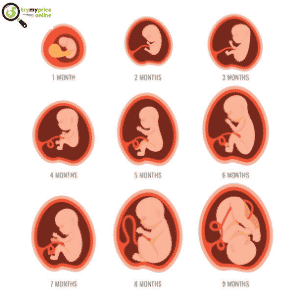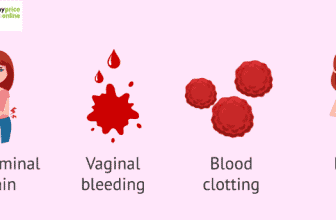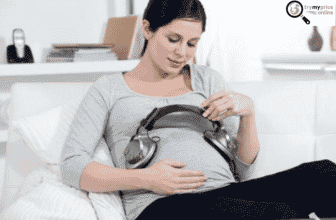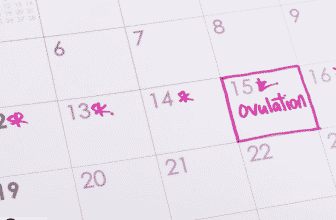
Trimesters of pregnancy, What is the average time it takes for a baby to be born? A typical pregnancy lasts 40 weeks, from the first day of your last menstrual period (LMP) through the birth of the baby. The first trimester, second trimester, and third trimester are the three trimesters of pregnancy. The fetus goes through a lot of changes during its development.
Related: Pregnancy test calculator week by week

extremely faint line on pregnancy test
Trimesters of pregnancy
The first trimester lasts from conception to the 12th week of your pregnancy.
The second trimester lasts 13 to 27 weeks, while the third trimester begins about 28 weeks and ends until the baby is born.
This slide show will show what occurs to both the mother and the baby during each trimester.
You can download a guide about trimesters of pregnancy from amazon.
Early Changes in a Woman’s Body, First Trimester
The first trimester is when you start to notice the early signs of pregnancy.
A missed period could be the first clue that fertilization and implantation have taken place, that ovulation has stopped, and that you are pregnant.
Other adjustments will occur as well.
Related: Bleeding during pregnancy causes and treatment
Changes a Woman Might Go Through, Second Trimester
You may discover that the second trimester is easier than the first.
Your nausea (morning sickness) and exhaustion may become less severe or disappear entirely.
Your body, on the other hand, will undergo more alterations.
The “baby bump” will appear when your abdomen grows to accommodate the growing baby.
You’ll be able to feel your baby move before the end of the second trimester!
Related: Early pregnancy discharge in detail
Changes a Woman Might Go Through,Third Trimester
The third trimester of pregnancy is the last period of the pregnancy.
Discomforts that began in the second trimester, as well as some new ones, are likely to persist.
You may have difficulty breathing and need to urinate more frequently as the baby grows and puts greater strain on your internal organs.
This is normal, and these issues should subside once you give birth.
Related: Protein creatinine ratio pregnancy calculator and its usage

chemical which forces monthly pregnancy test
How Can You Tell If You’re Pregnant Right Away?
A missed period is often the first indication that you’re pregnant, but how can you be sure?
Many women use home pregnancy tests to determine whether or not they are pregnant;
However, these tests are more accurate if taken at least one week following a woman’s last period.
It’s possible that the test will give you a misleading result if you take it less than 7 days before your last menstrual cycle.
If the test comes back positive, you’re more than likely pregnant.
If the test is negative, however, there is a greater likelihood that it is incorrect.
A blood test can detect pregnancy earlier than a pregnancy test.
That was Trimesters of pregnancy.
Related: Glucose test pregnancy and its importance
Weight Gain During Pregnancy
The weight a woman should develop during pregnancy is determined by her pre-pregnancy body mass index (BMI).
Women of average weight should acquire 25 to 35 pounds.
Women who were underweight previous to pregnancy should gain more weight during their pregnancy.
Pregnant women who are overweight or obese should gain less weight.
Trimesters of pregnancy

All in all, About trimesters of pregnancy, remember that the usual birth weight is between 6 and 9 pounds 2 ounces, and the average length is between 19 and 21 inches. The majority of full-term babies fit within these parameters, however healthy babies come in varied shapes and sizes.
References:







